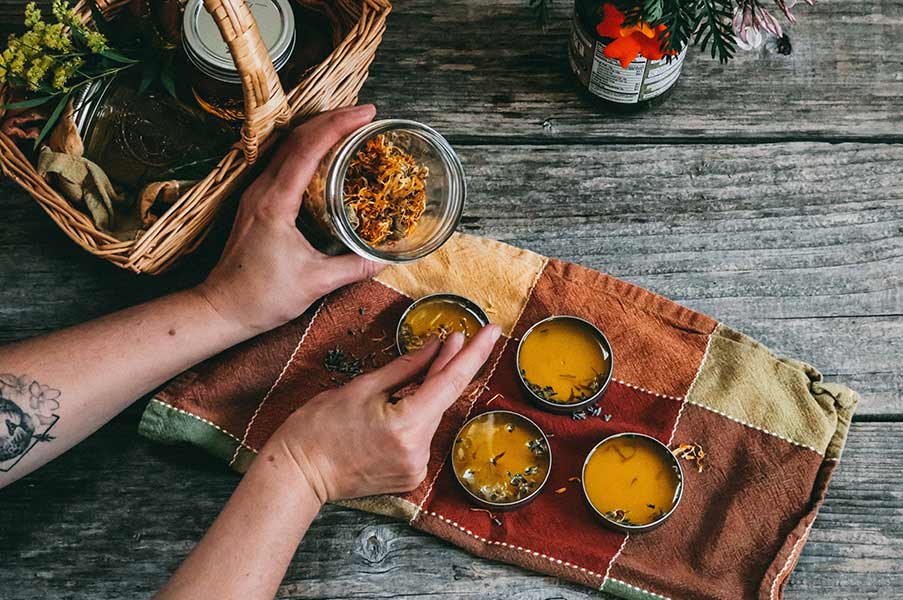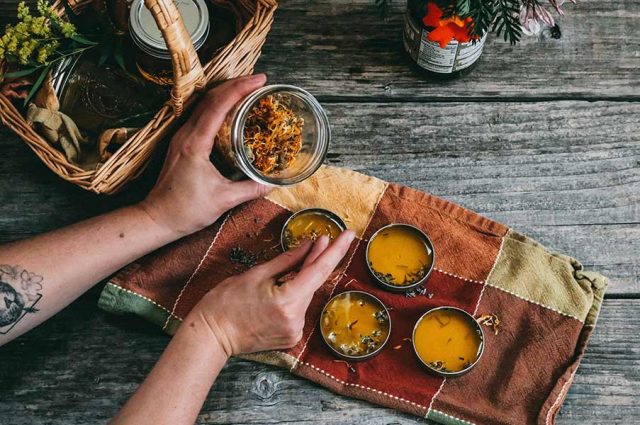Medically Reviewed by Beth Hendrickson, RN

Once your body develops a chronic illness or disease, adjusting to the changes in your life takes time. Over this period of time, you may create a cycle that keeps you in the pain. At first, when you hurt you don’t know what to do. You may become worried and depressed. This extra anxiety makes it really hard to sleep at night. When you get out of bed in the morning, you’re still tired. Being tired all day makes your pain even worse today than it was yesterday. Very easily, this whole routine just became a cycle.
So this week, we’re going to finish the Lupus series by discussing natural remedies for depression, anxiety, sleep, and fatigue. Again, Reiki and hypnosis are great for these areas.
Depression: The symptoms of depression can include poor concentration, confusion, irritability, self-accusation, loss of self-esteem, insomnia, feelings of emptiness and despair, loss of appetite, and loss of sexual drive.
First of all, depression is very serious, especially when accompanied by a chronic illness. Take what your doctor has prescribed for you, and let him know what natural methods you are interested in using. Do not replace your antidepressants with St. John’s Wort, for example. Don’t even add St. John’s Wort to your health care regimen without discussing it with your doctor. This remedy can interfere with your medication and your health.
What are some of the things that help naturally? Some of the best herbal remedies, easily taken as a tea, are balm, borage, limeflower, oats, rosemary, and vervain. Aromatherapy is also effective for depression with scents including neroli, jasmine, geranium, melissa, rose, ylang ylang, lavender, clary sage, and chamomile. The last four of these also act as a sedative. Diet and nutrition are also important. Vitamin B6, B12, folic acid, vitamin C, and an amino acid called tryptophan can all help with depression. Oats are an excellent source of B vitamins and work well as an antidepressant.
Anxiety: Anxiety accompanies depression and illness. The symptoms of anxiety include dry mouth, sweaty palms, rapid pulse, palpitations, breathlessness, headaches, general weakness, fatigue, tightness of the chest, high blood pressure, abdominal pain, diarrhea, insomnia, and loss of appetite.
Some of the herbs that can be used to help anxiety are ginseng, angelica, skullcap, valerian, lady’s slipper, and lime blossom. These ease tension and anxiety and can also be taken as a tea. Aromatherapy scents include lavender, geranium, bergamot, sweet almond oil, and peach. Again, B vitamins and oats can help with the symptoms of anxiety. Also be sure to avoid caffeine when you are experiencing anxiety.
Sleep: Sometimes I think lack of sleep is even tougher to deal with than pain, and of course, not getting a good cleansing, healing sleep, makes pain pretty unbearable. Self-hypnosis is by far one of the best ways to go to sleep at night. Not only will it help you fall asleep, the hypnosis suggestions will also continue to work the entire time you’re asleep, especially if you add your own suggestions for healing. It’s just this easy:
Script Guide: Just lay down, close your eyes and take three deep breaths (if you practice self-hypnosis enough, you will learn to be in deep hypnosis at this point)… now, starting with the top of your head, feel your muscles in your head relax… your forehead… your cheeks… your eyes… etc. Work this way all the way down through your toes. Once you reach the tips of your toes, imagine yourself in a beautiful place… anywhere in the entire universe will work… be in your healing place.
Now add your sliding ruler to decrease pain at this point. See the red arrow at the number on the ruler where your discomfort presently is… begin pushing it down… if you have to, get a bulldozer out in your imagination and push it down… then, when it’s at a very low level, hopefully 1 or 0, nail it into place.
Tell yourself that you are going to sleep a full 8 hours. No if’s, and’s, or but’s. You will sleep a full night… you will re-energize and heal during this wonderful night’s sleep… you will awaken feeling better than you ever have before. Period.
Fatigue: Chronic Fatigue Syndrome is most common in women, ages 18 to 35. This is also very close to the age that Lupus shows up. However, even if you don’t have CFS, having any chronic illness creates the same feeling. Being tired creates symptoms such as fever, headache, nausea, dizziness, muscle pain, weight fluctuation, sleep disturbance, depression, and memory loss.
What do we do for these symptoms? Ginger, ginseng, and ginkgo biloba are excellent energy supplements. Bergamot, rose, and neroli all help to uplift your general spirits and enhance your mood. Rosemary is wonderful added to your bath or even put in a vaporizer while you’re working. If you’re simply exhausted on all levels, olive flower works miracles! There must be nothing that Vitamin B-complex can’t make feel better; it’s also listed as a good energizer.
Did you find this article helpful? Join us at HealingWell for support and information about Lupus. Connect and share with others like you.
Darlene Cheek is a Certified Clinical Hypnotherapist and Reiki Master with years of experience in Holistic Therapy methods, including Reflexology, Aromatherapy, Herbalism, Crystal Healing and more.




